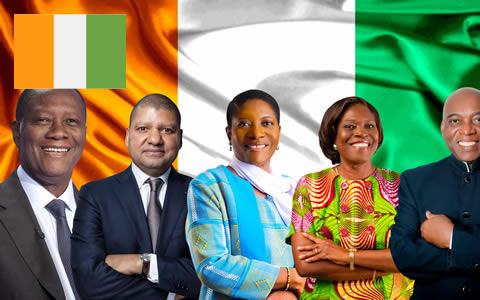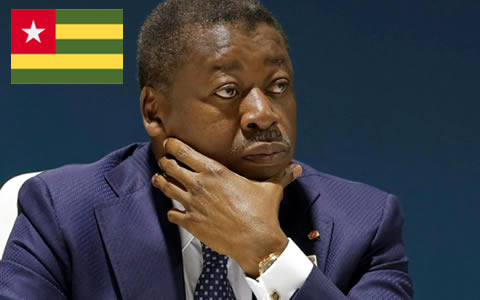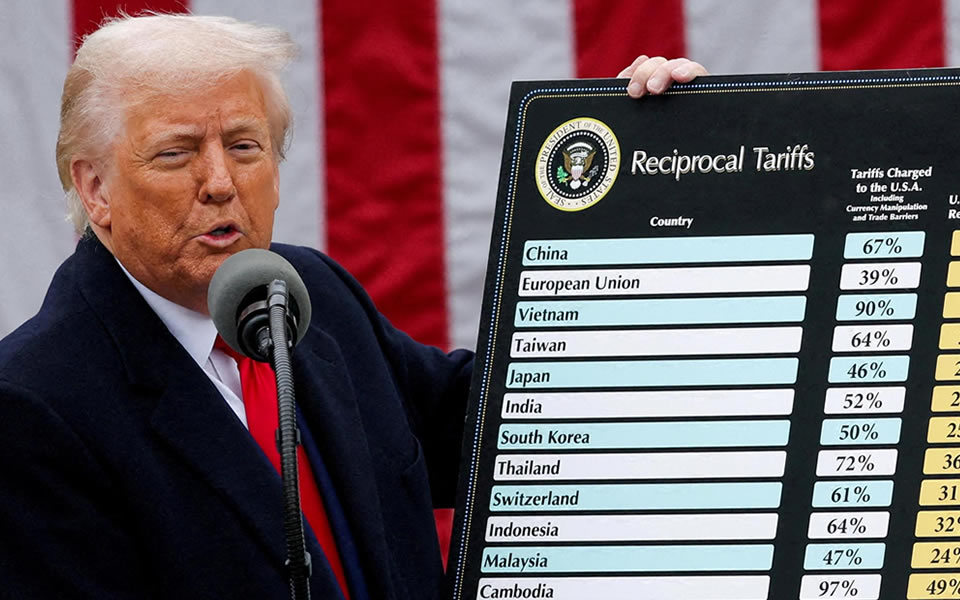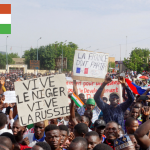
Niger: Quarter 1 2024 Assessment & Forecast
April 19, 2024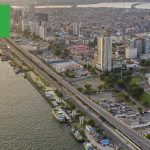
Nigeria: Country Risk Outlook for Businesses in 2024 Q2-Q4
April 26, 2024CONSTITUTIONAL REVISIONS IN TOGO: IMPLICATIONS AND FORECAST
Analysts: Moreblessing Takura Madzikatire
Senior Editor: Magdalena Breyer
What You Should Know
-
Constitutional Changes: President Faure Gnassingbé has initiated significant constitutional changes in Togo, shifting the country from a presidential to a parliamentary system where the president is elected by parliament rather than by public vote. This strategic shift is designed to maintain Gnassingbé's influence through legal channels, likely centralising power and reducing public accountability.
-
Public Response: This amendment has triggered widespread protests and opposition, citing concerns over democratic backsliding and power consolidation. The reaction from various opposition groups and civil society underscores the tension between legal reforms and maintaining democratic integrity.
-
ECOWAS’ Role: ECOWAS is very likely to advocate for dialogue and democratic processes, though direct intervention is unlikely given the amendments' adherence to Togo's legal framework.
-
Political Stability: The political landscape in Togo is very likely to remain unstable post-April 29 elections, driven by ongoing tension between Gnassingbé and the opposition. The government's approach to managing protests and the response from the international community will very likely be key in determining Togo’s future trajectory, affecting both national and regional stability.
-
Coup Likelihood: The strong relationship between President Gnassingbé and the Togolese military, a key element since his ascent to power in 2005, renders a military coup unlikely in the near to medium future, despite the trend of coups in other Sahelian countries.
The Constitutional Amendment
Togolese lawmakers adopted a new constitution on March 25, 2024, transitioning the country from a presidential to a parliamentary system. The president will now be elected by parliament for a single six-year term, without public debate. The amendment introduced a new position, "President of the Council of Ministers," to be filled by the majority party or coalition’s leader post-elections to oversee daily government operations for a six-year term. This shift delayed elections originally set for April 20 to April 29.
This constitutional change has raised significant concerns about the ruling government's potential to consolidate its power, marking a major shift away from direct public electoral involvement. The minimally represented opposition parties, including those from the 2018 election boycott like the DMK (Dynamique Monseigneur Kpodzro), view this as a strategic move by the ruling Union for the Republic (UNIR) party to entrench its power and continue the Gnassingbé family’s political dominance since 1967.
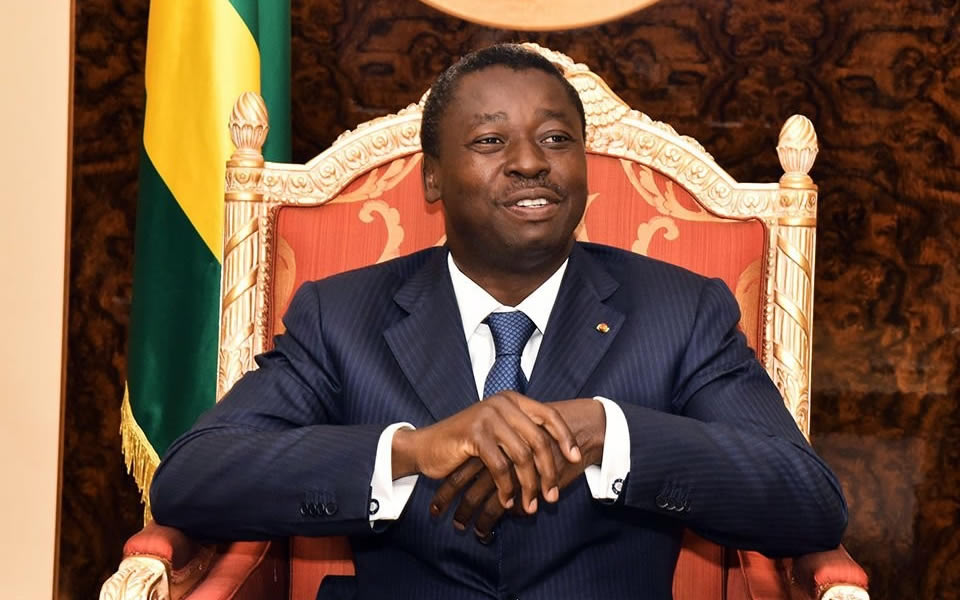
Faure Gnassingbé become President of Togo in 2005 following the death of his father, Gnassingbé Eyadéma who came to power in a coup and ruled Togo for almost 38 years.
Critics, including the minimally represented opposition parties from the 2018 election boycott, view this as a strategic move by the ruling Union for the Republic (UNIR) party to entrench its power, continuing the Gnassingbé family's political dominance since 1967. The opposition's active protests against these reforms have led to arrests on public order charges.
Civil society organisations (CSOs) and international observers have expressed worries that these changes could destabilise Togo's delicate political balance, potentially entrenching the ruling party's power and detracting from the country's democratic progress. The lack of a detailed schedule for a second reading in the National Assembly and the absence of a clear reaction from bodies like the Economic Community of West Africa (ECOWAS) underscores the profound implications of this amendment for Togo's democratic trajectory and regional stability.
Timeline of Key Political Events in Togo
1960
Togo gains full independence from France on April 27, led by Sylvanus Olympio as its first president.1963
President Sylvanus Olympio is assassinated in a coup, leading to Nicolas Grunitzky becoming president.1967
Gnassingbé Eyadéma comes to power through a coup and rules until his death in 2005.1991
Introduction of multi-party politics following national conference.2005
Gnassingbé Eyadéma dies; his son Faure Gnassingbé initially assumes power, resigns, and is then elected in controversial elections the same year.2015
Faure Gnassingbé is re-elected amid protests and claims of electoral fraud.2017
Major protests erupt against Faure Gnassingbé’s continued presidency, with demands for presidential term limits.2020
Faure Gnassingbé wins another controversial election, his fourth term as president, amid opposition accusations of voting irregularities.March 2024
Togo adopts a new constitution that shifts the nation from a presidential system to a parliamentary one. This move led to calls for protests by opposition parties and civil society groups. They criticized the reform as a constitutional coup designed to further entrench the current regime.
Background: Togo’s Political Climate and Constitutional History
Togo's political landscape has been shaped by the Gnassingbé family since Gnassingbé Eyadéma's coup in 1967. Eyadéma ruled authoritatively until his death in 2005, leveraging the constitution to prolong his tenure. The military installed his son, Faure Gnassingbé, immediately after Eyadéma's death, triggering international condemnation. Gnassingbé was later officially elected in controversial elections and has maintained power through successive, often disputed, elections.
Significant changes under Gnassingbé’s rule have aimed to entrench the ruling party's power while addressing calls for democratic reforms. A critical juncture was in 1992 when Togo adopted a new constitution introducing presidential term limits, later negated in 2002 when term limits were removed, permitting Eyadéma unlimited terms. The 2019 amendments reintroduced a two-term limit for the presidency, but did not apply retroactively and enabled Gnassingbé to extend his rule.
These changes are part of a broader regional trend in West Africa, where governance swings between democratic and authoritarian practices, including term limit extensions and military coups. often leading to instability and criticism from international entities. Togo’s shifts have been legislative unlike the abrupt regime changes through coups in some neighbouring countries, reflecting continued political dominance by the Gnassingbé family. This gradual approach underscores ongoing challenges in democratic development and governance renewal within the region’s complex political landscape.
Tactics and Techniques
Strategic Centralisation of Power
The primary motivation behind Togo's recent constitutional amendment is very likely the consolidation of power by the ruling Gnassingbé family. This change very likely aims to centralise power and diminish public influence by shifting presidential elections to a parliamentary system where the ruling party holds significant sway, reducing electoral challenges and popular dissent. The method of enactment, through constitutional amendments, very likely seeks to lend legitimacy to continued governance despite opposition and civil society criticisms of the process.
Imminent Adoption with Limited Public Input
The amendment will very likely be adopted and signed into law during the second reading, given the context of constitutional amendment and the prevailing political dynamics. The timing of the amendment, ahead of legislative and regional elections on April 29, is likely a strategic move by the ruling party to solidify its governance framework. This urgency will likely prompt the administration to expedite the process, possibly at the expense of broader consultative mechanisms. President Gnassingbé's long tenure and the ruling party's established dominance in parliament very likely creates a political environment conducive to passing significant legislative changes with minimal resistance.
Entrenchment of Presidential Power through Parliamentary Control
The National Assembly will very likely elect Gnassingbé as the President of the Council of Ministers, significantly transforming Togo’s political landscape as the role of President of the Republic will have no substantial power under the amendment. This arrangement will likely allow Gnassingbé to oversee Togo's executive functions without direct electoral accountability associated with the presidency, offering a long-term governance strategy while his party holds a parliamentary majority. The additional shift to a parliamentary voting system will likely centralise power among a small elite aligned with Gnassingbé, further solidifying the ruling party's control and reducing the electorate's influence on leadership. This system will very likely result in governance that prioritises ruling party interests over public needs and weaken the separation of powers by merging legislative and executive functions.
Diminished Accountability and Increased Social Unrest
The amendments will likely impair accountability, shifting presidential accountability from the electorate to the political elite within the ruling party. This reduction in direct electoral oversight will likely dilute mechanisms for public accountability like elections, media scrutiny, and public opinion, potentially leading to less transparent governance more susceptible to corruption and nepotism. Perceptions that these changes are designed to perpetuate Gnassingbé's rule will likely erode trust in the political system, leading to public apathy, decreased voter turnout, and possibly heightened social unrest as citizens seek other ways to voice their dissatisfaction and push for change.
Increase in Political Protests and Heightened Security Response
The very likely passage of Togo's constitutional amendment without broad public input, coupled with the arrest of opposition activists, likely signals a period of heightened political unrest. The arrests, viewed as suppressing dissent, are likely to catalyse rather than deter protests, consistent with Togo's history where such actions typically intensify opposition movements as activists seek to spotlight perceived injustices within the governance system. Protests are likely to grow in frequency and size in the upcoming weeks as opposition groups mobilise against the amendments and the detention of their members. The government will very likely respond with increased security measures, leading to a cycle of protest and crackdown.
ECOWAS’ Diplomatic Navigation of Togo’s Constitutional Change
ECOWAS will likely respond to the amendment with caution Togo's given its constitutional and legal grounding. The body’s lack of response to these developments very likely stems from its commitment to upholding democratic principles while respecting national sovereignty and legal frameworks. ECOWAS will likely favour diplomacy, advocating for dialogue between Togo’s government and its opposition to ensure reforms are inclusive and do not disrupt the nation’s stability or democratic integrity. ECOWAS will likely issue a statement of concern if the amendments are enacted without a referendum, likely calling for continued dialogue and cautioning against that could incite unrest or destabilise Togo. This statement will likely acknowledge ECOWAS's limited ability to intervene directly due to the amendments' legal nature.
Persistent Political Tension and Potential for Jihadist Instability
The political landscape in Togo is very likely to remain unstable following the April 29 elections, due to ongoing tension between Gnassingbé and the opposition, which is resolute in challenging the amendments. This political unrest and the perceived illegitimacy of government actions will likely weaken state authority and create vacuums that non-state actors operating in the Sahel region will possibly exploit in the upcoming months, particularly Jama'at Nasr al-Islam wal Muslimin (JNIM). JNIM will likely seek to leverage local grievances, weak state presence, and security vacuums to expand their influence in northern Togo, building on their 2023 expansion southward into the region and driven by growing pressures from military operations by Africa Crops and Malian Armed Forces (FAMa) in Mali.
Continued Military Support Under New Governance Structure
The recent constitutional changes are unlikely to significantly shift the military's supportive stance for Gnassingbé’s government, as the amendments favour the ruling party to which the military is a beneficiary. It is unlikely that Togo will experience military intervention in the short to medium term, given the military’s alignment with Gnassingbé’s government and their long standing relationship. The military will likely remain a supportive pillar of Gnassingbé’s government, particularly as the new constitutional framework reinforces rather than undermines their position. Long-term military support will very likely depend on evolving socio-political dynamics and civil-military relations, particularly the military’s position within the new system.

